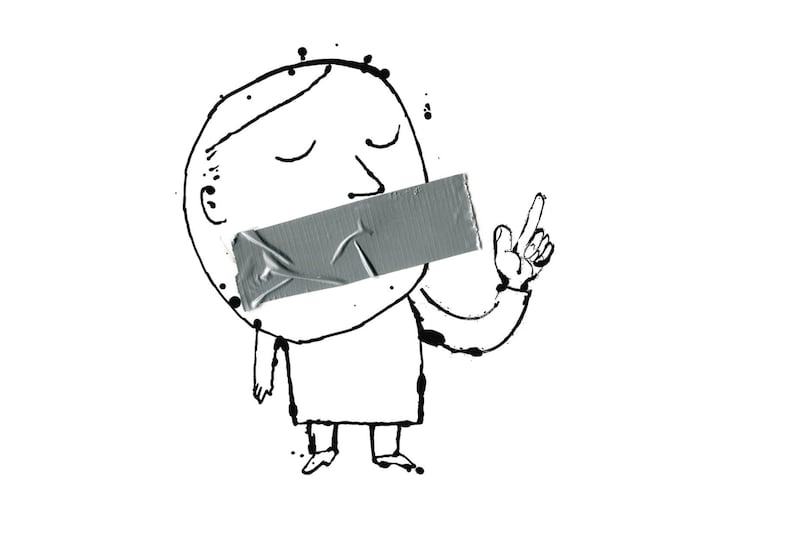No issue has defined the culture wars like political correctness, ever since the idea took hold in the 1990s. Merriam-Webster calls it “a belief that language and practices which could offend political sensibilities (as in matters of sex or race) should be eliminated.” Proponents see this as a comprehensive modern approach to the age-old mandate to be polite and respectful to people of different groups and backgrounds. But opponents, leery of the motives behind it, bristle at the idea that they can’t say whatever they want in the manner they’re accustomed to. What does it all come down to?

Language evolves with society
Being more conscientious about the words we choose and expanding our vocabulary can make language more flexible and accurate. This allows our speech to reflect a growing understanding of social realities as we strive to see our world from different points of view — particularly with regard to gender, race and other facets of identity. From this perspective, political correctness helps us to speak with respect for others whose experiences we might not share or understand.
We should expect language to keep changing along these lines, as the public discourse casts light on historical inaccuracies and inequities that persist in our words. For example, recent research into American slavery has spurred the use of “enslaved person” in lieu of “slave,” in an effort to avoid dehumanizing the subject while clarifying they were forced into that situation. This term has been adopted by the Library of Congress, National Archives, national parks and other institutions.
“When we use a category in English or any language, it defines someone as that’s who they are,” says Gregory Ward, professor of linguistics, gender and sexuality studies, and philosophy at Northwestern University. “To say that slaves were slaves eliminates their identity of being anything else.”
Political correctness tends to work in this fashion. People consider a label unrepresentative of an identity, lobby for change and start using a new alternative. Eventually, if the new phrase takes hold, it gets adopted by institutions with the power to shape our everyday language more broadly — as The Associated Press did in 2020 by deciding to capitalize “Black” to match other racial and ethnic descriptors like “Latino.”
Proponents argue that it comes back to choice. Yes, an individual should have agency in how they speak, but they argue that people should also have agency in how they are spoken about, from demographic labels to personal pronouns. “The people who say they’re silly aren’t the people who belong to the groups that are impacted by those terms,” Ward says. “They tend to be the majority, who have always had the benefit of being the arbiters of language.”

Speech restrictions hurt everyone
Some react derisively to the stilted constructions and sometimes precious distinctions that have become hallmarks of political correctness — like “unhoused” over “homeless” or “mummified persons” replacing “mummies.” But opponents also raise serious concerns, arguing that the movement stifles speech across the board and makes it difficult for people to engage in healthy discourse about social and political issues. Some warn of a blowback effect, with otherwise courteous people acting out against the imposition of new rules. They don’t support harmful speech, but rather oppose limits on dialogue and personal choice.
These fears are exacerbated when restrictions are imposed by powerful institutions. In 2022, Stanford University’s failed harmful language initiative flagged more than 100 words as potentially offensive — including terms like “master” and “slave” for connected hard drives and everyday words like “American.” The initiative was canceled after national media outlets called it “Orwellian,” and a student newspaper complained that the school “continually pressures students to submit to the woke newspeak regime.” The case highlights free speech issues, says Zach Greenberg, senior program officer for the Foundation for Individual Rights and Expression. “For an authoritative university body to come down and say these are the end-all be-all bad words, it shuts out debate or discussion.”
In general, labeling certain speech as correct or incorrect deters people from exchanging ideas. A 2017 survey titled “The State of Free Speech and Tolerance in America” by the Cato Institute, a libertarian think tank, found that 71 percent of respondents believe political correctness has silenced discussions that are important to society. It also found that while a majority of Americans view hate speech as morally unacceptable, they oppose laws to regulate hate speech.
Perhaps the most notable backlash has occurred in electoral politics. Former President Donald Trump became a hero to many after not only refusing to sanitize his speech, but defying the concept of civility as an impediment to progress. Once unorthodox, his behavior has become a model for others — including Gov. Ron DeSantis, Trump’s main rival in the GOP, who has waged a war on “woke” speech in Florida.
This story appears in the July/August issue of Deseret Magazine. Learn more about how to subscribe.


